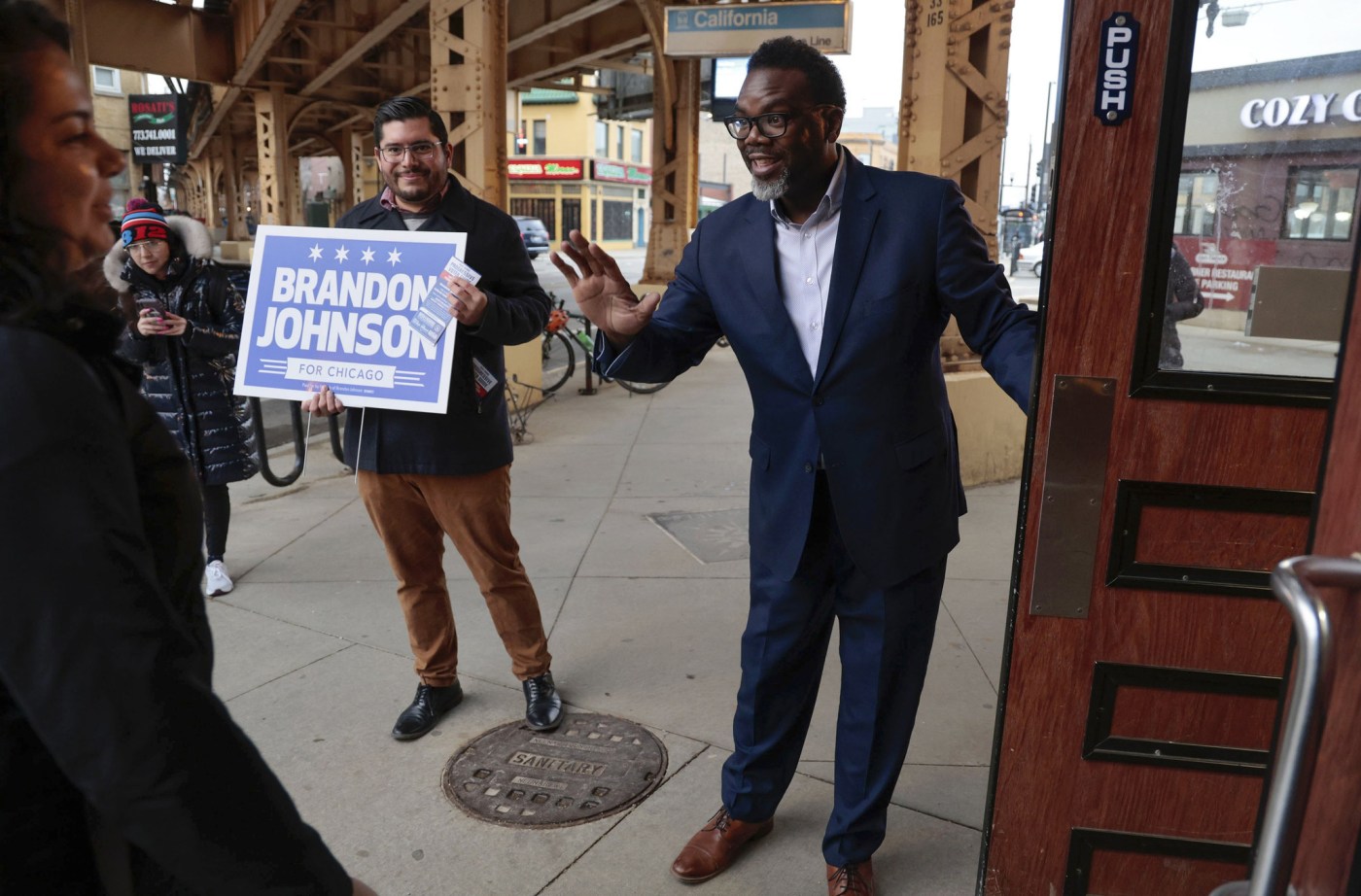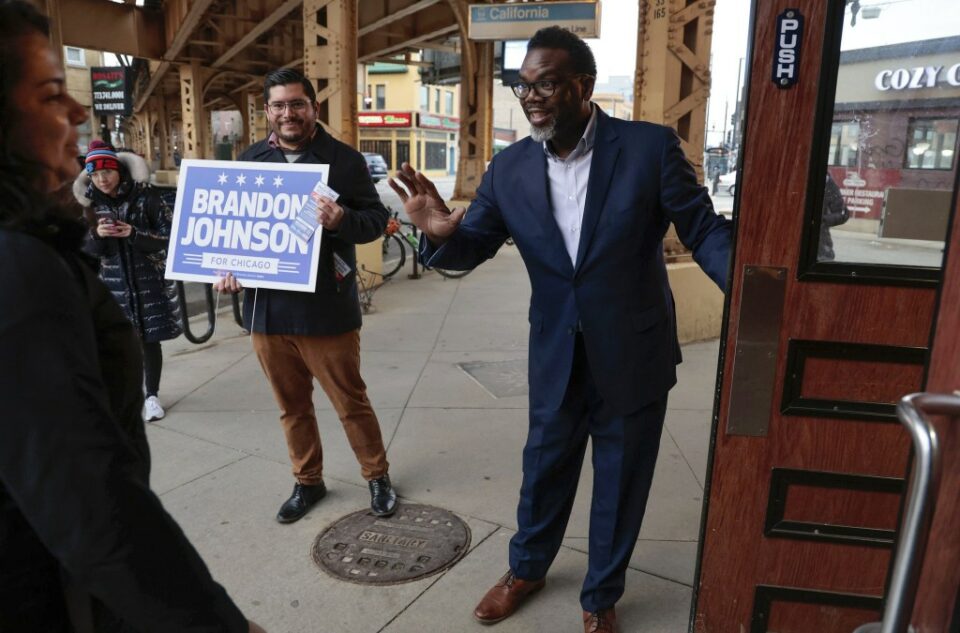
On her last weekday in office, former Mayor Lori Lightfoot delivered a parting shot to Chicago’s City Council: a barrage of 11 executive orders, one of which took aim at the longtime City Council tradition of aldermen having nearly complete control over development in their wards, which she saw as a root of corruption.
Lightfoot demanded recommendations on zoning changes made to the powerful Zoning Committee by the city’s lead zoning bureaucrat be shared publicly before hearings, as a way to show residents when aldermen opted not to take the advice.
Nine months into his term, however, Mayor Brandon Johnson and his aldermanic allies have not implemented the changes Lightfoot ordered. Johnson’s decision to so far to ignore Lightfoot’s executive order highlights his disinterest in taking on “aldermanic prerogative.”
The order from the recently defeated, lame duck Lightfoot echoed the anti-corruption rallying cry that won her the office four years prior, and followed several earlier, mostly unsuccessful attempts she made to rein in council members’ power during her single term. But that last quack is no longer reverberating at City Hall.
Lightfoot heralded the executive order as part of “essential” zoning reform to help the public understand how the council aids or impedes development. She lamented her buzzer beater policy’s apparent on-the-vine demise in a January appearance on former Cook County Clerk David Orr’s Politics 101 podcast.
“It’s those kinds of things that people need to rally behind and demand accountability to make sure that processes are transparent, that we’re governing as a democracy in the sunshine, in the daylight, and not behind closed doors,” she said.
Council members leading the Zoning Committee under Johnson pushed back against the value of Lightfoot’s late attempt to give Chicagoans a clearer understanding of the committee’s process. They say they appreciate her effort to add transparency, but think Lightfoot’s executive order was misplaced and inappropriately made.
But Better Government Association policy analyst Geoffrey Cubbage argued Lightfoot’s executive order could give residents a better foothold to vet decisions the Zoning Committee makes on controversial changes by building a public record of the zoning administrator’s expert opinions.
Continuing to simply trust aldermen to act in residents’ best interests “requires a lot more faith,” Cubbage said.
Aldermen have long opposed attempts to curtail prerogative, arguing they know what’s best for their wards.
Lightfoot overcame that reluctance in late 2021, when she built a council coalition to push through a Far Northwest Side affordable housing project over the objections of local Ald. Anthony Napolitano, 41st.
Urging his colleagues to join him in voting against the plan, Napolitano gave a defense of prerogative in which he warned aldermen “while you’re advocating for a great cause, you’re taking away your right to decide what happens in your ward tomorrow.”
The planned development near Cumberland Avenue and Higgins Road along the Kennedy Expressway has since stalled due to financial problems and changes to the housing market, but the council vote to pass the project stands as a landmark moment in Chicago’s troubled history with affordable housing segregation.
But the difficulty of any fight over aldermanic prerogative and the need to curry favor with aldermen is certainly no secret to Johnson as he pushes forward on big ticket items from his broad progressive agenda, including his Bring Chicago Home efforts to raise taxes on property sales over $1 million to fund a greater response to homelessness that many developers stiffly oppose.
Johnson spokesperson Ronnie Reese confirmed the executive order “from the waning days of the previous administration” has not been put into place, but said “its transparency aspects are well received” and it is being reviewed among other zoning policy changes. The new mayor remains committed to “a collaborative approach” to the zoning process, Reese added.
On the campaign trail, Johnson seemed to reject Lightfoot’s intense focus on aldermanic prerogative, suggesting power shouldn’t be overly concentrated at City Hall.
“Not one person alone can transform this city,” he said to a question about the entrenched tradition. “I’m a collaborator, and alderpersons who have been elected by their community have a rich understanding of the nuances and the variances that exist in their communities.”
Reese said a decision on the policy hasn’t been made in part because “the Zoning Committee has been without a long-term Zoning chair” since Johnson took office.
Johnson initially chose ally Ald. Carlos Ramirez-Rosa, 35th, for the seat. But Ramirez-Rosa resigned the post in November after facing bullying allegations centered on purported physical intimidation and political strong-arming against colleagues as the council considered a nonbinding ballot referendum question on the city’s sanctuary status for immigrants.
When speaking to Orr, Lightfoot accused Ramirez-Rosa of “putting the kibosh” on her executive order. She did not respond to Tribune requests for comment on the situation.
Ramirez-Rosa denied axing the policy to the Tribune, arguing that only the mayor can enforce policy affecting the city zoning administrator. But he said he thought it was “inappropriate” for Lightfoot to use executive orders to make wide-ranging policy changes “in her final hours in office.”
“The voters elected a new mayor, and if she felt it was important, she should have issued it during the early days of her administration,” he said.
The policy change would bring additional transparency, but wouldn’t fundamentally reshape the zoning process while adding work for a bureaucratic team that’s stretched thin, Ramirez-Rosa said.
By the time the recommendations would be made public under the policy, aldermen and their communities would have already undergone a long process to vet and tweak the proposals in question, he added.
His focus now is on finding other ways to make sure the zoning process is inclusive, engaging and transparent with policies in his own ward such as a requirement to post bigger signs at potential development sites displaying renderings and multilingual information, Ramirez-Rosa said.
If Lightfoot’s thwarted dream of curbing aldermanic prerogative had further concentrated zoning power in the mayor’s office, it would have only made development less democratic, he argued.
“I don’t think we should have decisions made behind closed doors by unelected bureaucrats,” Ramirez-Rosa said.
Acting Zoning Chair Ald. Bennett Lawson, 44th, questioned whether the public would learn much from the zoning administrator’s basic recommendations: “recommended,” “not recommended” and “no objection.”
The recommendations fail to capture the nuances of zoning changes up for consideration, he said. Making them public could give too much weight to the recommendations, which aren’t typically heavily considered by aldermen and developers at the end of an often arduous vetting process, he said.
Lawson called Lightfoot’s goals of consistency and transparency laudable, but said Johnson and the Department of Planning and Development could better achieve them in the zoning process at earlier points with other reforms. He praised Johnson’s shift of focus away from aldermanic prerogative.
“He has maybe learned the lesson that there are ways to pursue transparency without demonizing the City Council,” Lawson said.
Though the Zoning Committee order came as she had one foot out the door, Lightfoot also made earlier attempts to gut the tradition of prerogative. Her crusade started with her first official act as mayor: an executive order that directed city departments to not defer to aldermanic wishes in decision-making unless required by law.
Johnson could rescind the Zoning Committee executive order with one of his own, Cubbage said. By letting it stay on the books without enforcing it, the mayor risks future orders becoming “vestigial” and ineffective, he said.
“There’s not a hard process that needs to be followed, but there is a process that needs to be followed,” he said.
Jake Sheridan , 2024-02-11 11:01:43
Source link


